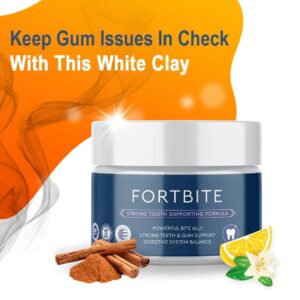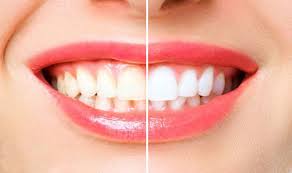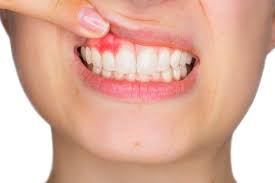Can tooth sensitivity be cured naturally?
Tooth sensitivity, also known as dentin hypersensitivity, can be managed and reduced with natural remedies in some cases, but it’s essential to keep in mind that the effectiveness of these remedies can vary from person to person. Natural approaches to addressing tooth sensitivity focus on desensitizing the teeth and promoting overall oral health. Here are some natural remedies and strategies that may help alleviate tooth sensitivity:
- Saltwater Rinse: Rinse your mouth with a warm saltwater solution. Saltwater can help reduce inflammation and soothe sensitive teeth and gums.
- Desensitizing Toothpaste: Use a desensitizing toothpaste that contains potassium nitrate or strontium chloride. These ingredients can help block pain signals from the nerves in your teeth.
- Fluoride Toothpaste: A fluoride toothpaste can help strengthen tooth enamel, making it more resistant to acid attacks and reducing sensitivity.
- Avoid Acidic Foods and beverages. Acidic foods and drinks can erode tooth enamel and worsen sensitivity. Limit your consumption of acidic items like citrus fruits, sodas, and vinegar.
- Avoid Abrasive Toothbrushes: Use a soft-bristle toothbrush to avoid further enamel wear and gum recession. Brush gently, as aggressive brushing can contribute to sensitivity.
- Oil Pulling: Some people find relief from tooth sensitivity through oil pulling, which involves swishing a tablespoon of coconut oil or sesame oil in the mouth for about 15 minutes daily. This practice is thought to reduce bacteria and soothe sensitive teeth.
- Aloe Vera Gel: Applying a small amount of aloe vera gel to sensitive areas of your teeth and gums can have a soothing effect.
- Green Tea: Green tea contains antioxidants that may help reduce inflammation and promote oral health. Rinse your mouth with green tea or drink it without added sugar.
- Cloves: Clove oil has natural analgesic properties and can be applied topically to relieve tooth sensitivity. Use a cotton swab to apply a small amount of diluted clove oil to the affected area.
- Dietary Changes: Consume a diet rich in calcium and vitamin D to promote strong teeth and enamel. Dairy products, leafy greens, and fatty fish are good dietary sources.
It’s essential to note that while these natural remedies can provide relief for some individuals, they may not work for everyone, and the effectiveness can vary. Additionally, tooth sensitivity can be a symptom of an underlying dental issue, such as cavities, gum disease, or enamel erosion. If you experience persistent or severe tooth sensitivity, it’s crucial to consult with a dentist for a proper evaluation and diagnosis. Your dentist can recommend appropriate treatments or interventions based on the cause of your sensitivity and your individual oral health needs.
Can tooth sensitivity be cured?
Tooth sensitivity, also known as dentin hypersensitivity, can often be effectively managed and reduced, but it may not be completely cured in all cases. The approach to addressing tooth sensitivity typically depends on the underlying cause. Here are some common strategies to manage and reduce tooth sensitivity:
- Desensitizing Toothpaste: Using a toothpaste specifically formulated for sensitive teeth can help reduce sensitivity. These toothpastes typically contain ingredients like potassium nitrate or strontium chloride, which can block pain signals from the nerves in your teeth.
- Fluoride Treatments: Professional fluoride treatments provided by a dentist can help strengthen tooth enamel, making it more resistant to acid attacks and less prone to sensitivity.
- Dental Bonding: In cases where sensitivity is due to exposed dentin (the inner part of the tooth), your dentist may recommend dental bonding. This involves applying a tooth-colored resin to cover and protect the exposed dentin.
- Gum Grafting: If gum recession is causing sensitivity, a gum graft procedure may be recommended. This involves taking tissue from another part of your mouth and attaching it to the receded gumline to cover exposed tooth roots.
- Dietary and Lifestyle Changes: Avoid acidic foods and beverages, which can erode tooth enamel and worsen sensitivity. Limit consumption of sugary or acidic foods and drinks, and maintain good oral hygiene practices.
- Proper Brushing and Flossing: Use a soft-bristle toothbrush and gentle brushing technique to avoid enamel wear and gum recession. Flossing regularly can help remove plaque and prevent gum disease, which can contribute to sensitivity.
- Mouthguard for Teeth Grinding: If tooth sensitivity is due to teeth grinding (bruxism), a dentist may recommend wearing a mouthguard at night to protect your teeth from further damage.
- Treating Underlying Dental Issues: Tooth sensitivity can be a symptom of other dental problems, such as cavities, gum disease, or cracked teeth. Addressing these underlying issues is crucial for managing sensitivity.
It’s important to note that the success of treatment for tooth sensitivity depends on the cause and severity of the sensitivity, as well as individual factors. In many cases, sensitivity can be significantly reduced or even eliminated with the appropriate treatment and changes in oral care practices.
If you are experiencing persistent or severe tooth sensitivity, it’s essential to consult with a dentist. They can assess your specific situation, determine the underlying cause, and recommend the most suitable treatment options for your needs. In some instances, tooth sensitivity may be a chronic issue that requires ongoing management and preventive care.
How do you calm a sensitive tooth nerve?
Calm a sensitive tooth nerve, you can try the following strategies:
- Desensitizing Toothpaste: Use a toothpaste formulated for sensitive teeth. These toothpastes typically contain ingredients like potassium nitrate or strontium chloride, which can help block pain signals from the nerves in your teeth. Use the toothpaste as directed, usually by brushing with it at least twice a day.
- Fluoride Treatments: Professional fluoride treatments provided by a dentist can strengthen tooth enamel and make it more resistant to acid attacks and sensitivity. Your dentist may apply a fluoride gel or varnish during a dental visit.
- Soft-Bristle Toothbrush: Use a soft-bristle toothbrush to brush your teeth gently. Hard-bristle brushes and aggressive brushing can contribute to enamel wear and increased sensitivity.
- Avoid Acidic Foods and beverages. Acidic foods and drinks can erode tooth enamel and worsen sensitivity. Limit your consumption of acidic items like citrus fruits, sodas, and vinegar.
- Limit Sugar and Starchy Foods: Sugary and starchy foods can contribute to tooth decay, which can lead to sensitivity. Reduce your intake of these foods and maintain a balanced diet.
- Fluoride Mouthwash: Rinse with a fluoride mouthwash after brushing your teeth. This can provide an extra dose of fluoride to help strengthen your enamel.
- Dental Bonding: If you have exposed dentin (the inner part of the tooth), your dentist may recommend dental bonding. This involves applying a tooth-colored resin to cover and protect the exposed dentin.
- Gum Grafting: If gum recession is causing sensitivity, a gum graft procedure may be necessary. This involves taking tissue from another part of your mouth and attaching it to the receded gumline to cover exposed tooth roots.
- Over-the-Counter Pain Relief: You can try over-the-counter pain relief gels or ointments designed for tooth sensitivity. These products can provide temporary relief by numbing the area.
- Mouthguard for Teeth Grinding: If you grind your teeth (bruxism), a dentist may recommend wearing a mouthguard at night to protect your teeth from further damage.
- Prescription Medications: In some cases, a dentist may prescribe medications to help manage tooth sensitivity, especially if it is related to nerve issues or severe sensitivity.
It’s essential to consult with a dentist if you experience persistent or severe tooth sensitivity. They can assess your specific situation, determine the underlying cause, and recommend the most appropriate treatment options for your needs. While these strategies can provide relief, it’s important to address the root cause of the sensitivity for long-term management and prevention.
Why are my teeth suddenly sensitive?
Teeth can become suddenly sensitive for various reasons, and this sensitivity is often referred to as dentin hypersensitivity or tooth sensitivity. Some common factors that can cause teeth to become suddenly sensitive include:
- Tooth Decay: Cavities or dental caries can expose the inner layers of the tooth, leading to sensitivity when you consume hot, cold, sweet, or acidic foods and drinks.
- Gum Recession: Receding gums can expose the tooth roots, which are more sensitive than the enamel-covered crown of the tooth. This can occur due to gum disease, aggressive brushing, or other factors.
- Tooth Grinding (Bruxism): Excessive grinding or clenching of teeth, often during sleep, can wear down enamel and lead to sensitivity.
- Cracked or Chipped Teeth: Teeth that have cracks or chips can expose the inner layers of the tooth, causing sensitivity.
- Recent Dental Procedures: Sensitivity can occur after certain dental treatments, such as fillings, crown placements, or teeth whitening procedures. This sensitivity is usually temporary and should subside.
- Tooth Erosion: Acidic foods, drinks, or stomach acids from conditions like acid reflux can erode tooth enamel, leading to sensitivity.
- Aggressive Brushing or Brushing with a Hard Bristle Brush: Brushing too hard or with a hard-bristle toothbrush can wear down enamel and irritate the gums, causing sensitivity.
- Dietary Habits: Consuming highly acidic or sugary foods and beverages can contribute to enamel erosion and tooth sensitivity.
- Cracked or Leaking Fillings: Older fillings can deteriorate over time, leading to gaps or cracks that expose the tooth to sensitivity triggers.
- Sinus Infections or Allergies: Sometimes, sinus congestion or allergies can cause referred pain to the upper teeth, mimicking tooth sensitivity.
- Toothpaste or Mouthwash: Some toothpaste and mouthwash products contain harsh ingredients that can lead to irritation and sensitivity in some individuals.
- Underlying Dental Issues: Other dental issues, such as gum disease or dental infections, can contribute to sensitivity.
If you experience sudden or persistent tooth sensitivity, it’s essential to consult with a dentist. They can assess your specific situation, identify the underlying cause, and recommend appropriate treatment or management options. Addressing the root cause of the sensitivity is crucial for long-term relief and maintaining good oral health.
How long can tooth sensitivity last?
The duration of tooth sensitivity can vary widely depending on the underlying cause and how effectively it is managed or treated. In some cases, tooth sensitivity may be temporary and last only a short time, while in other cases, it may persist for an extended period or even become a chronic issue. Here are some common scenarios for how long tooth sensitivity can last:
- Temporary Sensitivity: Tooth sensitivity that occurs as a result of a recent dental procedure, such as a filling, crown placement, or teeth whitening, is often temporary and typically lasts for a few days to a couple of weeks. This type of sensitivity usually resolves as the tooth or teeth recover from the procedure.
- Sensitivity Due to Gum Recession: Sensitivity caused by gum recession may persist as long as the gum recession remains unaddressed. However, with proper management and treatment (such as gum grafting), it may be possible to reduce or eliminate the sensitivity.
- Sensitivity Due to Enamel Erosion: If tooth sensitivity is related to enamel erosion from acidic foods, drinks, or acid reflux, it can be an ongoing issue. Preventive measures and dietary changes can help manage it, but the sensitivity may persist if acid exposure continues.
- Sensitivity Due to Tooth Decay: Sensitivity caused by tooth decay or cavities can persist until the decay is treated by a dentist. Early-stage decay may cause temporary sensitivity, but if left untreated, it can progress and lead to more prolonged sensitivity.
- Chronic Sensitivity: Some individuals may experience chronic tooth sensitivity due to factors like bruxism (teeth grinding), gum disease, or other underlying dental issues. In these cases, sensitivity may persist until the underlying problem is effectively managed or treated.
- Sensitive Teeth: Some people have naturally sensitive teeth, which can be a lifelong condition. However, this sensitivity can often be managed and reduced with proper dental care and desensitizing toothpaste.
The key to addressing tooth sensitivity is identifying the underlying cause and working with a dentist to develop an appropriate treatment plan. Dentists can provide guidance on managing and reducing sensitivity based on specific circumstances. In many cases, tooth sensitivity can be effectively managed or resolved, but it may require ongoing preventive care and lifestyle adjustments to maintain long-term relief. If you are experiencing tooth sensitivity, it’s essential to consult with a dentist to determine the cause and receive appropriate care.
What deficiency causes sensitive teeth?
Nutritional deficiencies, particularly deficiencies in certain vitamins and minerals, can contribute to oral health issues, including sensitive teeth. While there is no specific deficiency directly linked to tooth sensitivity, deficiencies in the following nutrients can potentially impact oral health and make teeth more susceptible to sensitivity:
- Calcium: Calcium is crucial for the development and maintenance of strong teeth and bones. A deficiency in calcium can weaken tooth enamel, making teeth more vulnerable to sensitivity and decay.
- Vitamin D: Vitamin D plays a role in calcium absorption, and a deficiency can affect calcium utilization in the body. Inadequate vitamin D levels may indirectly impact tooth enamel and oral health.
- Vitamin C: Vitamin C is essential for maintaining healthy gums and oral tissues. A deficiency in vitamin C can lead to gum problems, including gum disease, which can contribute to tooth sensitivity.
- Magnesium: Magnesium is involved in bone formation and maintenance. A magnesium deficiency can potentially affect tooth enamel and overall oral health.
- Phosphorus: Phosphorus is another mineral necessary for tooth and bone health. A deficiency in phosphorus can impact the strength of tooth enamel.
It’s important to note that while these nutrient deficiencies can contribute to oral health issues, tooth sensitivity is often a multifactorial condition with various potential causes, including gum recession, enamel erosion, tooth decay, and more. Additionally, other factors such as diet, oral hygiene practices, and lifestyle habits also play significant roles in the development and management of tooth sensitivity.
To promote good oral health and reduce the risk of tooth sensitivity, maintain a balanced diet that includes foods rich in essential vitamins and minerals, practice good oral hygiene, and visit a dentist regularly for check-ups and professional cleanings. If you suspect you have a nutritional deficiency, consult with a healthcare provider or nutritionist for appropriate guidance and supplementation recommendations.
Does sensitive teeth come with age?
Tooth sensitivity can occur at any age, and it is not necessarily a condition that solely comes with age. However, there are some factors that may make individuals more prone to tooth sensitivity as they get older:
- Gum Recession: Gum recession, which is more common in older adults, can expose the tooth roots. The roots are more sensitive than the enamel-covered crowns of the teeth, making older individuals more susceptible to sensitivity.
- Tooth Wear: Over time, teeth can naturally wear down due to factors such as brushing habits, grinding or clenching of teeth (bruxism), and dietary choices. As enamel wears away, the dentin (the inner part of the tooth) may become exposed, leading to sensitivity.
- Tooth Decay: Cavities can develop at any age, but they become more common as people age. Untreated cavities can lead to tooth sensitivity.
- Dental Procedures: Older adults may have a higher likelihood of having dental restorations (e.g., fillings, crowns) that can develop issues over time, potentially leading to sensitivity.
- Medications: Some medications, particularly those taken by older individuals, can have side effects that affect oral health. For example, medications that cause dry mouth (xerostomia) can increase the risk of sensitivity because saliva helps protect teeth.
- Gum Disease: Gum disease (periodontal disease) is more prevalent in older adults. Advanced gum disease can lead to gum recession and exposed tooth roots, contributing to sensitivity.
- Acidic Foods and Drinks: As people age, dietary choices may include more acidic foods and beverages, which can contribute to enamel erosion and sensitivity.
It’s important to note that while aging can be a factor in tooth sensitivity, it is not the sole determinant. Tooth sensitivity can affect people of all ages, and its development is influenced by various factors, including genetics, oral hygiene practices, diet, and overall oral health.
To reduce the risk of tooth sensitivity and maintain good oral health as you age, it’s essential to practice regular oral hygiene, visit your dentist for check-ups and cleanings, and address any dental issues promptly. If you experience tooth sensitivity, consult with your dentist, as there are effective treatments and strategies to manage and reduce sensitivity regardless of your age.
What is the best medicine for sensitive teeth?
The best treatment for sensitive teeth depends on the underlying cause of the sensitivity. Sensitivity toothpaste and fluoride treatments are common options for managing and reducing tooth sensitivity. However, it’s essential to identify the cause of your sensitivity and work with a dentist to determine the most appropriate treatment. Here are some options:
- Desensitizing Toothpaste: Toothpaste formulated for sensitive teeth is often the first line of defense against tooth sensitivity. These toothpaste products contain active ingredients like potassium nitrate or strontium chloride, which help block nerve signals that transmit pain. Brush your teeth with a desensitizing toothpaste regularly for effective results.
- Fluoride Treatments: Professional fluoride treatments provided by a dentist can help strengthen tooth enamel, making it more resistant to acid attacks and reducing sensitivity. Dentists may apply a fluoride gel or varnish during a dental visit.
- Dental Bonding: If you have exposed dentin (the inner part of the tooth), your dentist may recommend dental bonding. This involves applying a tooth-colored resin to cover and protect the exposed dentin.
- Gum Grafting: In cases of gum recession causing sensitivity, a gum graft procedure may be recommended. This involves taking tissue from another part of your mouth and attaching it to the receded gumline to cover exposed tooth roots.
- Dietary and Lifestyle Changes: Avoid acidic foods and beverages, which can erode tooth enamel and worsen sensitivity. Limit consumption of sugary or acidic foods and drinks, and maintain good oral hygiene practices.
- Mouthguard for Teeth Grinding: If you grind your teeth (bruxism), a dentist may recommend wearing a mouthguard at night to protect your teeth from further damage.
- Over-the-Counter Pain Relief: You can try over-the-counter pain relief gels or ointments designed for tooth sensitivity. These products can provide temporary relief by numbing the area.
- Prescription Medications: In some cases, a dentist may prescribe medications to help manage tooth sensitivity, especially if it is related to nerve issues or severe sensitivity.
It’s important to consult with a dentist if you experience persistent or severe tooth sensitivity. They can assess your specific situation, determine the underlying cause, and recommend the most suitable treatment options for your needs. Addressing the root cause of the sensitivity is crucial for long-term relief and maintaining good oral health.







